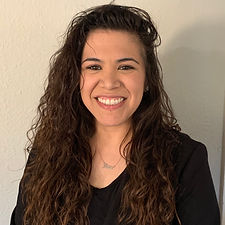
We are excited to launch the California Pathways to Practice Virtual Speaker Series—a collection of live, one-off talks throughout the year
A Few Key Details
-
You’ll register for each session individually as they are announced.
-
Students and clinicians are encouraged to attend.
-
CE credit is available only for live attendance for specified events, but recordings of most events will be accessible afterward.
-
Visit our Virtual Exhibit Hall to meet the sponsors who help make this series possible.
Artificial Intelligence in Clinical Practice: Ethics and Considerations for Care
Artificial intelligence promises to revolutionize the way that clinicians deliver services, manage their practices, and interact with the larger public. Laws and ethics codes have been slow to give guidance on just how these tools can be responsibly used in the delivery of clinical care. This workshop explores the role of how informed consent, data protection, and responsibility should factor into a clinician’s decision on how artificial intelligence tools are used in the delivery of mental healthcare.
Virtual Speaker Series Presentation
February 13th, 8:30 AM to 10:00 AM PST
Smart Marketing for Therapists
This presentation is designed to help mental health professionals use digital marketing to reach more clients in an ethical and effective way. We’ll cover website optimization, SEO, social media strategies, and content marketing—all tailored for therapists, coaches, and wellness experts. The goal is to simplify digital marketing so you can grow your practice without feeling overwhelmed. You’ll leave with clear, actionable steps to improve your online presence and connect with the right audience.
Virtual Speaker Series Presentation
February 20th, 8:00 AM to 9:30 AM PST
Attachment in Action: Understanding and Cultivating Secure Relationships
Attachment is the deep psychological and emotional bond that connects individuals. Rooted in the research of Harry Harlow, John Bowlby, and Mary Ainsworth, attachment theory explores how we form, maintain, and function in relationships throughout our lives. While early attachment patterns develop in childhood through interactions with primary caregivers, research shows that people can cultivate secure attachment styles and build healthier, more fulfilling relationships at any stage of life. This presentation offers an experiential and insightful overview of attachment theory, its development, and the four primary attachment styles in action. Attendees will engage in an interactive exploration of their personal attachment journey and discover practical strategies for fostering secure attachment patterns in themselves and clients. Participants will leave with a solid understanding of attachment theory and actionable tools to enhance their own relationships, support clients, and strengthen the therapeutic process.
Virtual Speaker Series Presentation
March 6, 8:00 AM to 9:30 AM PST
Growing Your Client Base More Effectively By Understanding The Value Of Each Marketing Effort
How do I know which thing(s) I did to support and expand my own practice actually worked? Therapists today market their private practice in many ways - networking, social media, Google ads, online directories - but many therapists don’t know which marketing efforts provide the best return on investment. In this presentation, attendees will learn how they can assess the data behind their various marketing efforts, allowing them to identify which marketing efforts provide the best outcomes.
Virtual Speaker Series Presentation
March 20th, 8:30 AM to 10:00 AM PST

_edited_edited.jpg)
.jpg)


Humanity is suffering more than it ever has (suicide rates and addiction rates are not getting better) and traditional models of support can flat line after extended use. There is a need to go beyond traditional therapeutic modalities and begin to integrate non-traditional modes of healing, learning and growing. We will have discussion with 4 licensed therapists who are integrating alternative methods into their assessments and practices in ethical ways. Each clinician on the panel will explain how their alternative practices are accelerating the healing process of their clients. Modalities such as; astrology, human design, enneagram, chakra nutrition, reiki, sound bath, crystals, tarot, energy healing and more will be discussed. Insurance reimbursement and integrating these practices ethically will also be discussed.
Michelle Hirschman (she), LCSW, Vanessa Holliman (she), LCSW & Katie Fields (she), PhD, LMHC, LMFT & Meg Reinis (she), LMFT & Ektha Aggarwal (she), LCSW
PANEL:
Creative Healing: Alternative Modalities of Care
Virtual Speaker Series PANEL
April 10th, 9:00 AM to 10:00 AM PST
Autism Adapted and Affirming Care for Treatment Providers
This presentation explores a de-pathologized understanding of autism, highlighting the importance of recognizing autism as a natural variation rather than a disorder. Attendees will learn how to incorporate strengths-based strategies that focus on empowering autistic clients, promoting self-determination, and prioritizing consent and respect in therapy. By shifting the focus to individual strengths and needs, therapists can create more inclusive, affirming environments that foster autonomy and self-advocacy in autistic clients.
Virtual Speaker Series Presentation
April 24th, 8:00 AM to 9:30 AM PST
Becoming a Location-Independent Therapist: Unlock Your Global Practice! Discover how to build a thriving therapy career from anywhere in the world! This informative panel will guide you through the pathways to becoming a location-independent therapist, covering remote work options, online platforms, and client management tools. Learn about the legal and ethical considerations of practicing across borders, including licensing requirements, confidentiality laws, and insurance concerns. Our experts will provide practical steps, resources, and insights into navigating the evolving world of teletherapy while maintaining professional standards. Join us and explore how you can expand your reach, build flexibility, and provide impactful care, no matter where you are!
Maya DeNola (she/her), MSW, LCSW, CYP-500, LCSW, Lindsey Provencher (she/her), LPCC, Kelsey Di Pirro (she/her), LCSW, CAADC, AASW, SEP
PANEL:
Location Independent Therapy - Pathways and Considerations
Virtual Speaker Series Panel
May 8th, 8:30 AM to 10:00 AM PST
Spontaneity in Action: Creative Approaches to Challenging Cases
In psychodrama, spontaneity is defined as the ability to respond to a new situation adequately or to bring a fresh perspective to an old one. In this session, you'll have the opportunity to bring your most challenging client cases and receive guidance on how to tap into your own creative potential, approaching obstacles through a new, experiential lens. While many trainings are available for experiential modalities, you don’t need extensive hours of additional training to begin working experientially with your clients. The key is to embrace the principle of "show me, don’t tell me" and to cultivate your own spontaneity and creativity in practice. This consultation panel will offer fresh ideas and strategies to work with existing clients, empowering you to approach your therapeutic challenges with greater flexibility and innovation. Whether you're looking to deepen your practice or find new ways to engage your clients, this session will help you tap into your creativity and bring a fresh, dynamic energy to your work.
CASE CONSULTATION:
Virtual Speaker Series Case Consultation
May 22, 2026, 8:00 AM to 9:30 AM PST
Breaking the Chains: Unlocking the Power of Therapeutic Modalities in Addiction Treatment
Breaking the Chains: Unlocking the Power of Therapeutic Modalities in Addiction Treatment is an interactive training designed for clinicians and students seeking to enhance their approach to substance use disorders (SUDs). This workshop covers key topics, including the link between trauma and addiction, evidence-based treatments like Medication-Assisted Treatment (MAT), group therapy, and Acceptance and Commitment Therapy (ACT). Through an instructional power point including case studies and discussions, participants will gain practical skills to improve patient outcomes.
Virtual Speaker Series Presentation
June 12, 8:30 AM to 10:00 AM PST
Breaking the Rules — To Break Free
Traditional therapy norms often fail to match the intensity of an eating disorder. This workshop invites clinicians to examine when and how to break the “rules” of therapy—ethically and strategically—to truly help clients recover. Learn how to challenge outdated clinical assumptions, embrace direct engagement, and use radical permission as a tool for dismantling the eating disorder’s control. Through case studies and experiential exercises, participants will leave with a bold, unapologetic approach to helping clients break free.
Virtual Speaker Series Presentation
June 26, 2:00 PM to 3:30 PM PST
The Power of Connection: Building Professional Networks for Practice Growth
This case consultation will explore the critical role that strategic networking plays in the development and sustainability of a professional identity, particularly in clinical and collaborative environments. Using case material and real-world examples, we will examine how clinicians and allied professionals can build and maintain relationships that support career advancement, reduce professional isolation, and expand access to resources. We will discuss both in-person and virtual strategies for cultivating meaningful connections, address common barriers such as burnout or imposter syndrome that impact outreach, and review best practices for maintaining long-term professional relationships. Attendees will engage in practical exercises and leave with actionable tools to enhance networking effectiveness in ways that align with their values and clinical roles.
CASE CONSULTATION:
Virtual Speaker Series Presentation
July 10, 2026 , 8:00 AM to 9:30 AM PST
In Her Arms: How Mother-Daughter Healing Fosters Eating Disorder Recovery
This presentation explores the profound impact of the mother-daughter relationship on the development and treatment of eating disorders. Through a feminist psychotherapy perspective, we will examine themes of attachment, separation, individuation, cultural influences, and matrophobia. We’ll discuss how gender role expectations, identity, and generational patterns shape this dynamic, alongside a clinical case discussion. By understanding the mother-daughter attachment model, we can explore how mothers can serve as a vital resource for recovery, fostering healing and resilience rather than focusing on blame or shame.
Virtual Speaker Series Presentation
July 24, 8:30 AM to 10:00 AM PST
Recordings of Past Presentations
Embracing and Honoring the Crone: Exploring Body Image and Eating Disorders in Menopause
In a culture that places a premium on being young, how can we best support our clients moving through menopause? The crone, often seen as malignant, evil, withered, and discardable, can also be an archetype signifying wisdom, experience, compassion, and radiating power. This interactive workshop will explore the body changes that occur throughout menopause, the mental health issues that can arise especially surrounding body image, self-worth, and identity, and the body wisdom and respect one can gain during this part of the life cycle.
Virtual Speaker Series Presentation
October 24th, 8:30 AM to 10:00 AM PST
LGBTQIA2s+ Affirmative Trauma Informed Care
Virtual Speaker Series Presentation
October 30th, 8:00 AM to 9:30 AM PST
This presentation will explore the intersection of affirmative and trauma-informed care for LGBTQ+ clients. It will focus on how mental health professionals can integrate approaches to provide holistic and comprehensive care for gender and sexual minorities who have experienced trauma. Emphasis will be placed on understanding the unique forms of trauma LGBTQ+ individuals may face and provide practical tools and strategies for creating safe, affirming spaces that support healing, build resilience, and promote recovery for LGBTQ+ clients.
Substance Use Disorder - The Hidden Diagnosis
In this workshop, Gabrielle Loomis-Annett, a Licensed Independent Substance Abuse Counselor will assist clinicians with practical tools to address SUD in their day to day counseling. Together we will explore the spectrum of SUD from mild to severe as well as corresponding interventions and approaches to treatment. After this workshop, you will 1) understand how to protect yourself from the liabilities associated with Substance Use Disorder; 2) develop the proper assessments for your practice or position; 3) learn practical language and approaches to addressing SUD with your clients and 4) gather helpful resources for necessary referrals.
Virtual Speaker Series Presentation
December 12, 8:00 AM to 9:30 AM PST
Meeting Betrayal Trauma: What You Need to Know
Meeting Betrayal Trauma in the Therapy Room This training equips therapists to effectively navigate betrayal trauma, helping clients process deep relational wounds with clarity and support. You’ll learn to identify key challenges, collaboratively piece together trauma narratives, and apply evidence-based techniques to promote healing. Additionally, we’ll explore ethical boundaries, therapist neutrality, and strategies for building a secure therapeutic alliance. Whether clients choose reconciliation or separation, you'll gain tools to guide them toward empowered, informed decisions. Perfect for therapists seeking a structured, trauma-informed approach to betrayal recovery.
Virtual Speaker Series Presentation
December 19, 8:00 AM to 9:30 AM PST
Virtual Speaker Series Presentation
January 9, 8:30 AM to 10:00 AM PST
Weight and Body Size as a Multicultural Identity: Ethical and Social Justice Considerations
While not often considered part of multicultural identity, one’s experience based on body size is often similar to other marginalized identities. Notable sizeism in employment, healthcare, and other spaces caused weight stigma to become a social justice issue. In healthcare, weight stigma often results from clinicians’ implicit biases. The expectation that clinicians are caring and empathic makes their stigmatized behaviors uniquely detrimental. Multicultural competency and ethics require clinicians to understand the experience of weight stigma, its societal functions, its intersection with identity, and ways to protect against it. This presentation explores essential concepts for mitigating weight stigma in clinical practice.
Chemical Desire, Ethical Dilemmas: Exploring Moral Injury in Sexualized Drug Use
Chemical Desire, Ethical Dilemmas: Exploring Moral Injury in Sexualized Drug Use examines the complex intersection of substance use, sexual behavior, and moral injury. This presentation delves into the psychological and ethical consequences individuals face when drug driven sexual experiences lead to regret, shame, or a fractured sense of self. Through research, case studies, and discussion, we explore how altered states impact decision-making, consent, and personal values shedding light on the hidden costs of drug driven pleasure-seeking behaviors.
Virtual Speaker Series Presentation
January 16, 8:00 AM to 9:30 AM PST
Virtual Speaker Series Presentation
November 14th, 8:00 AM to 9:30 AM PST
Calming Anxiety Through Writing for Mental Health, Addiction and Trauma
In this hands-on workshop participants will explore different emotions and experiences through creative writing exercises. By reflecting on thoughts and feelings though writing, participants will develop a deeper understanding of their own mental health, emotional intelligence and well-being. Participants will also learn how creative writing can be utilized as a powerful tool for self-expression and self-discovery. Join us and learn how use writing prompts and activities that include poetry, journaling and imaginative writing. Participants leave this session with inspiring ideas and a list of creative writing activities that work all type of clients!
Redefining Time: A Practical Guide to Achieving Success Through Tasks
Redefining Time: A Practical Guide to Achieving Success Through Tasks, is designed to engage participants in a deep and introspective conversation about task management as a critical tool for success. Drawing on the core principles from my book Redefining Time, this presentation will provide participants with practical skills and actionable insights to enhance their ability to manage tasks effectively and achieve their academic and personal goals.










%20-%20MD%20wanderlust_edited.jpg)






%20-%20Janae%20Borrego.jpeg)



%20-%20Janae%20Borrego.jpeg)





